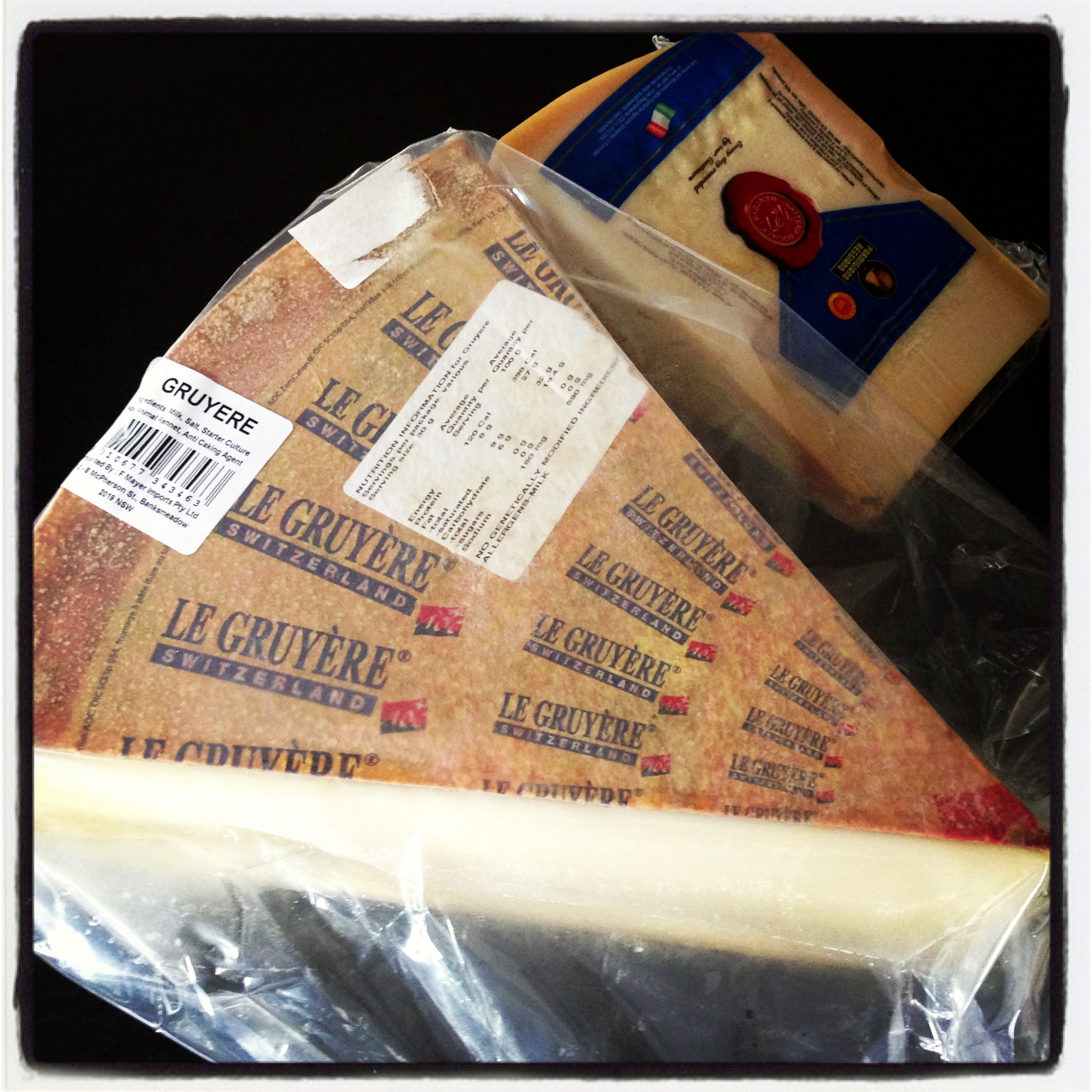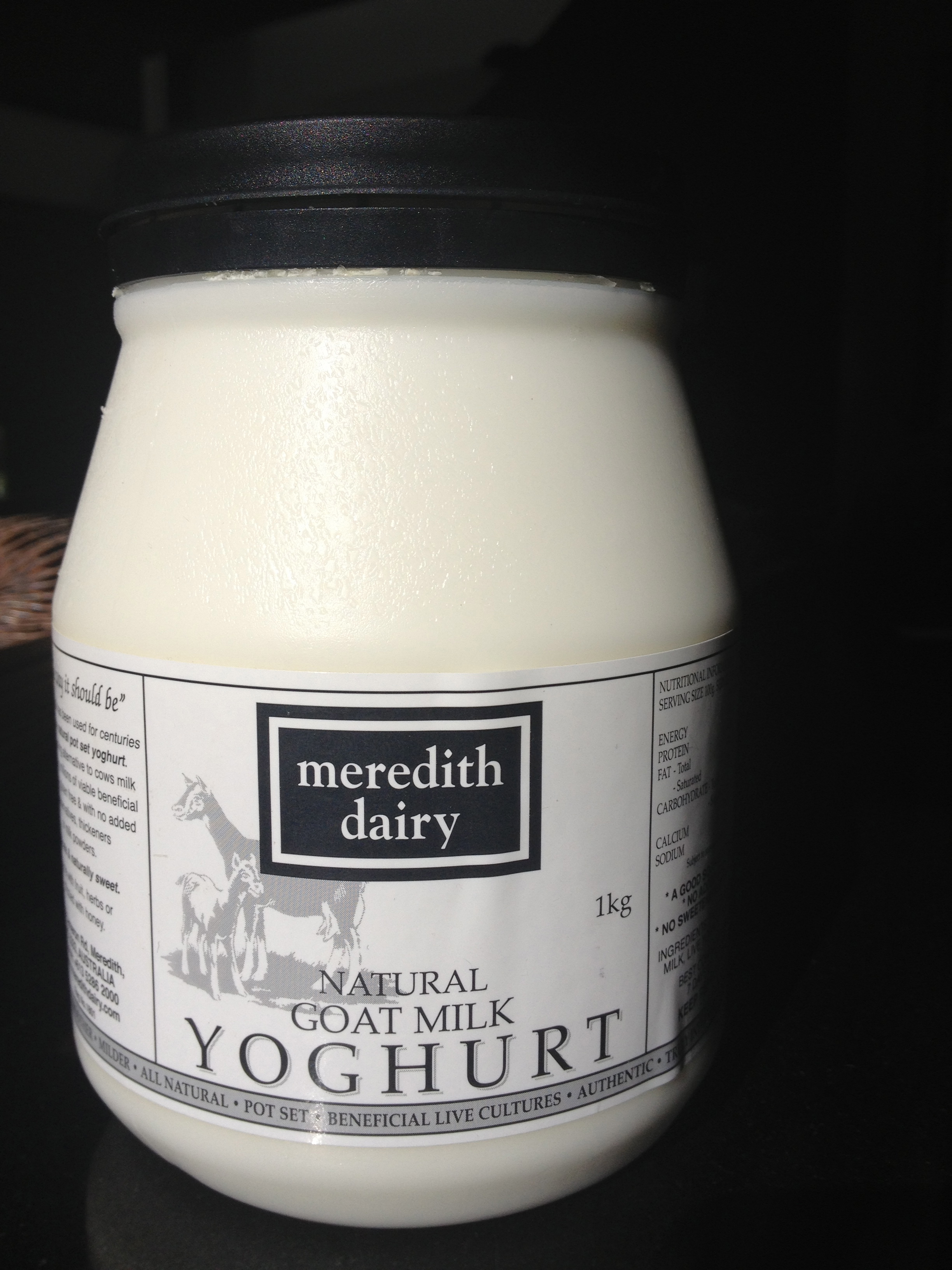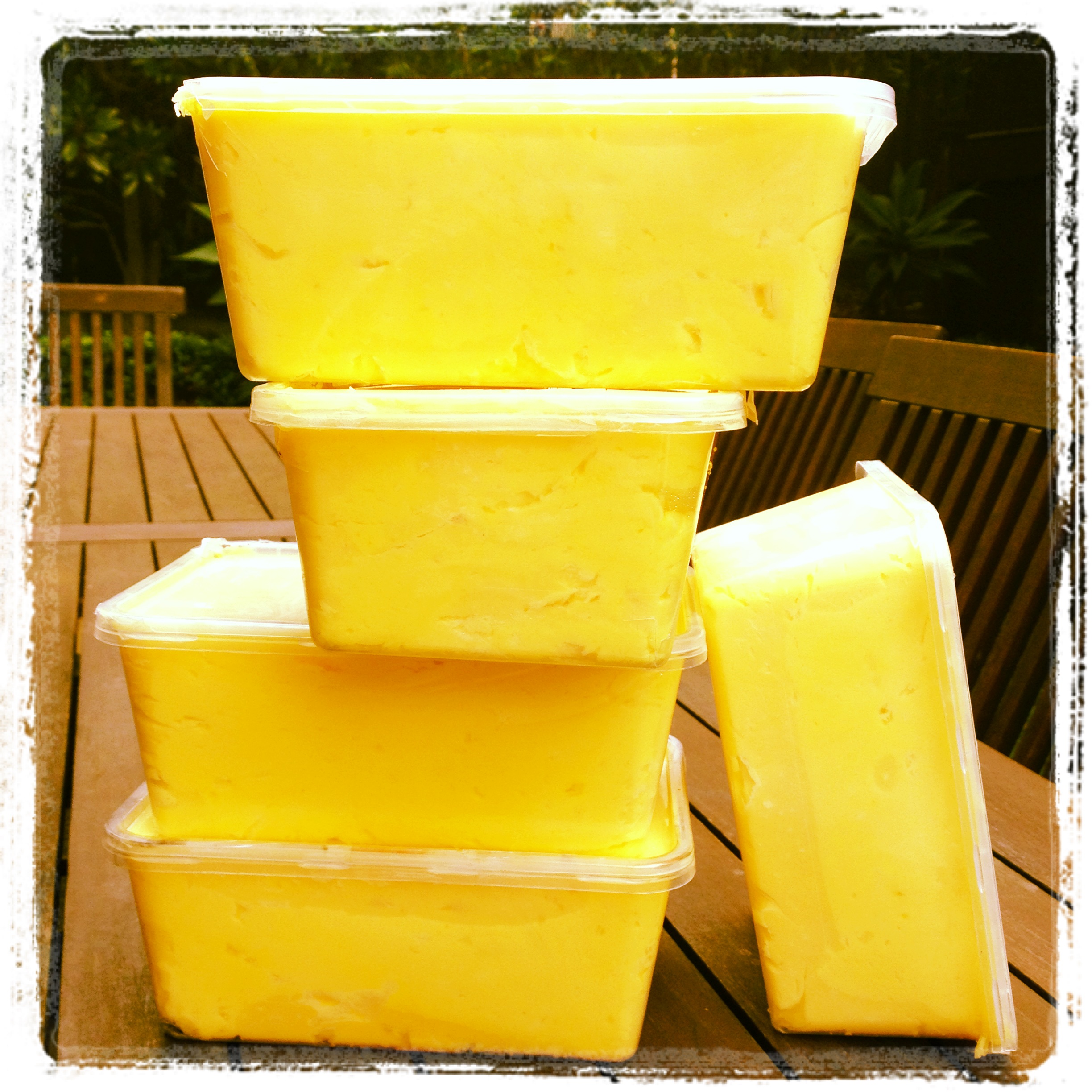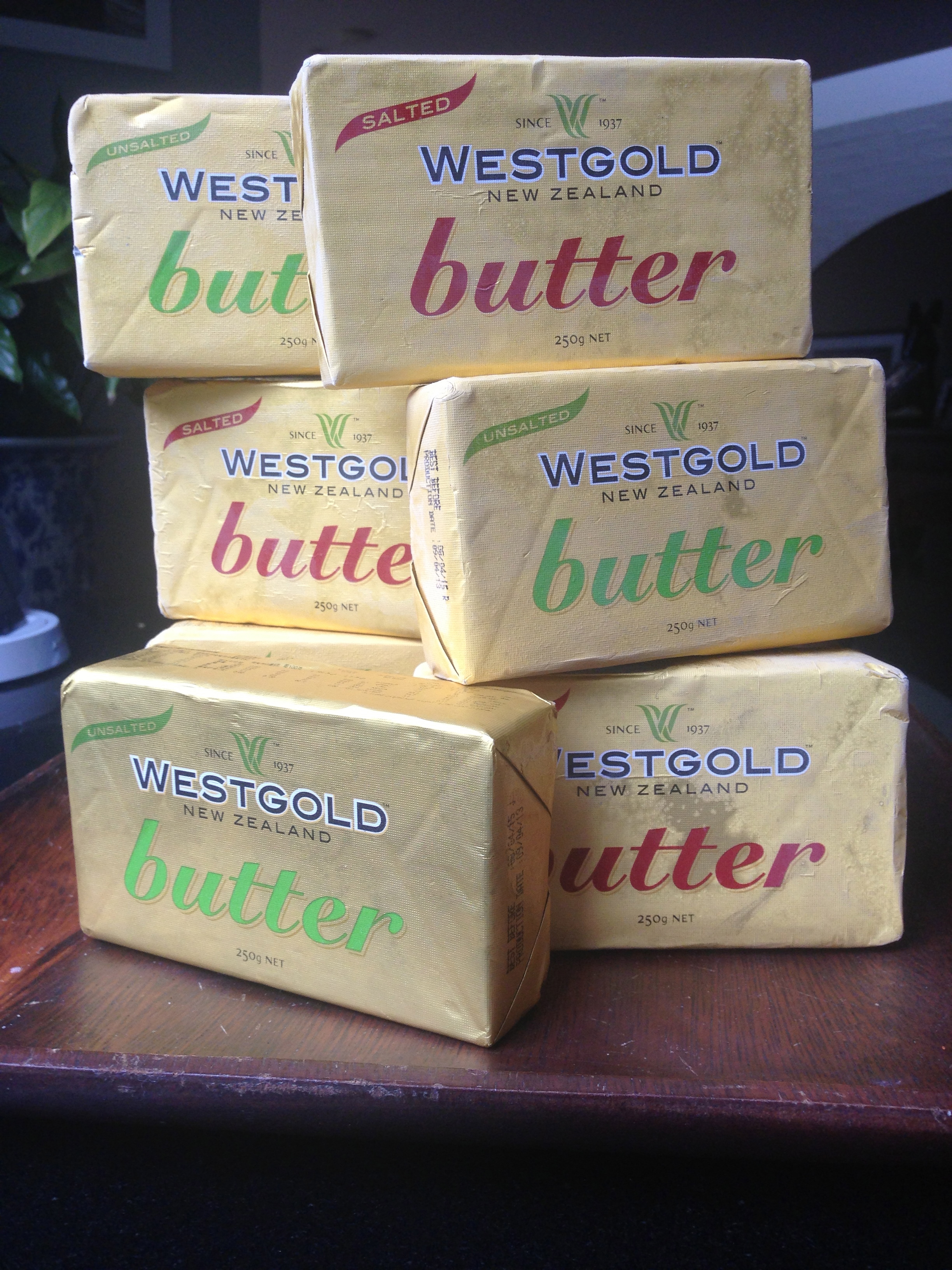Let me rephrase the question. What does my ironman eat? Not Kellogs Nutrigrain. Nor sports gels or Gatorade. Ok, then what?

My husband Grant competed in the Port Macquarie Ironman a week ago along with 1500 other competitors. That's a 3.8 km swim (mass start), a 180 km cycle topped off with a marathon (42.2 km) for good measure. It takes all day to complete. Literally. I personally think it's insanity. Sure we are biologically designed for intense physical activity but not for such a long period of time (I can't think of a reason why our hunter gatherer ancestors would have had the need to have exerted themselves with strenuous physical endeavours for 8-17 hours straight. Can you?). Anyway before my views on Ironman events (and endurance events generally) lead me down the path of divorce I will very quickly say that I think it is a bloody AWESOME feat for anyone to compete and finish such an event, and in Grant's case to have done so with seeming grace and style. It just shows just what the human body can accomplish if mind and body work together in uncapitulating unison.
At 40 years of age, Grant's race time (11.25 hours) and recovery were both pretty phenomenal. Despite being a year older, he shaved a whopping 1 hour off last years' time (12.31 hours) and recovered much faster. I attribute these improvements in performance and recovery to the following 3 factors:
1) increasingly great nutrition over the past year, not just in the lead up to the event. Each month and year over the past 5 years in particular we have continued to steadily improve our diet bit by bit by removing more and more toxic foods (e.g. grains, legumes, refined sugar and industrial seed oils such as canola and vegetable oils) and replacing them with as much nutrient-dense wholefoods as possible. So compared to a year ago, Grant's diet has certainly improved and this has been reflected in his athletic performance. I set out in a table at the bottom of this post what Grant ate in the week before and on the race day because this seems to be a question I am frequently asked. The point here is that what Grant ate in the week before the event was exactly what he would eat in any old typical week in our household and was nothing out of the ordinary for us. Bone broths, slow cooked pastured meats, raw dairy, enzyme-rich lacto-fermented foods and pastured eggs, are now our nutrient-dense daily staples. I didn't make any "special" or different foods in the lead up to the event because nutrient-dense traditional wholefoods are already pretty special by their very nature- it's what we are biologically designed to eat. This is what our ancestors of yesteryears not only survived on but THRIVED on. And ponder how fit and healthy they had to be to run down and kill a wild elk for dinner or sprint for their life from a sabre-toothed tiger, or chop their own firework, carry heavy loads manually, and scale mountains by foot.... all in a days work. Our genes are biologically designedfor nutrient-dense food, so when we consume it, all of the systems and functions of the human body work more efficiently. Just like a car that is given the right fuel, the more we consume things that we are designed to consume, the more efficient and robust the human body becomes. The more it flourishes and hums. Now having said all that, and to remind myself that no one (myself included) is perfect, Grant is a bit of a coffee addict. So add at least 2 espressos a day on top of his morning lattes (its a running joke that if he ever leaves investment banking he could always find a job as a barista...or be found in some dark smoky corner cafe in Italy). And he entertains a lot for work - so add a few alcoholic beverages to the table too. I'm not talking about wild benders, just a few drinks a week.
 The 2 foods that I want to make special note of for their importance pre and post endurance events are bone broths and coconut oil. Forget the synthetic highly processed glycosamine supplements - bone broths house the entire extended family of glycosaminoglycans that build and repair the muscular skeletal system (which obviously cops a pounding during endurance events and training). You want to ensure the you are going intoa sporting eventwith as robust an osteo-skeletal system as possible. Bone broths are a great source of protein and healthy saturated fat and very easily assimilated in the body. Coconut oil too is a highly saturated fat- the preferred source of fuel for the body. It is antibacterial, antimicrobial, antifungal and antiviral. So when immunity is low (or could be low such as after an endurance event when the body is completely spent) coconut oil can kill potential bad bugs and build immunity. Like bone broth, coconut oil bypasses normal digestive processes and gets digested far more quickly than other foods (sparing the body of much energy ordinarily required for digestion). Easily digested foods are just the ticket for anyone who is energy-depleted or in a state of recovery (from athlete performance, illness, surgery, giving birth etc). The less energy you spend digesting your food the more energy you have for other things like recovery, work or play :-) Comsuming fats and proteins within an hour of intense physical exercise rebuilds muscle. So as soon as we got back to the apartment after the Ironman event I had Grant drinking lamb bone broth with coconut oil while soaking in an Epsom salt bath.
The 2 foods that I want to make special note of for their importance pre and post endurance events are bone broths and coconut oil. Forget the synthetic highly processed glycosamine supplements - bone broths house the entire extended family of glycosaminoglycans that build and repair the muscular skeletal system (which obviously cops a pounding during endurance events and training). You want to ensure the you are going intoa sporting eventwith as robust an osteo-skeletal system as possible. Bone broths are a great source of protein and healthy saturated fat and very easily assimilated in the body. Coconut oil too is a highly saturated fat- the preferred source of fuel for the body. It is antibacterial, antimicrobial, antifungal and antiviral. So when immunity is low (or could be low such as after an endurance event when the body is completely spent) coconut oil can kill potential bad bugs and build immunity. Like bone broth, coconut oil bypasses normal digestive processes and gets digested far more quickly than other foods (sparing the body of much energy ordinarily required for digestion). Easily digested foods are just the ticket for anyone who is energy-depleted or in a state of recovery (from athlete performance, illness, surgery, giving birth etc). The less energy you spend digesting your food the more energy you have for other things like recovery, work or play :-) Comsuming fats and proteins within an hour of intense physical exercise rebuilds muscle. So as soon as we got back to the apartment after the Ironman event I had Grant drinking lamb bone broth with coconut oil while soaking in an Epsom salt bath.
We took all our food with us to Port Macquarie - so the car was packed to the rafters with the likes of coconuts and liters of bone broth amidst triathlon gear of every description plus a couple of kids buried in there. On both our parts it involved expeditious military-like planning to ensure that everything ran without a hitch. The omission of something seemingly minor, such as unrefined salt, could have disastrous consequences.
2) great hydration and nutrition on the day of the race and immediately afterwards. I made 2 litres of home made sports drink of coconut water, freshly squeezed orange juice, filtered water, bovine beef gelatine and sea salt. Ditch the Gatorade and other ready made sports drinks - they are full of highly processed and synthetic flavours,colours and preservatives- these potentially tax the body, making it work harder and expend more energy, as it tries to synthesis substances it's not biologically designed to assimilate. Simply make your own cheaper and healthier version. Grant needed to supplement the home made sports drinks with plain water (as opposed to Gatorade) from aid stations throughout the course as it's just not possible to carry that much home brew with you. During the course he ate a few dates which I packed for him (highly glycemic to replenish lost glycogen stores), and grabbed some watermelon and banana pieces from aid stations.

3) high intensity interval training (short intense bursts of cycling, running and swimming as opposed to long repetitive steady-state exercise done at moderate intensity also known as 'cardio'). So you don't need to train for long periods of time even though the event you are competing in might be a long distance event. Instead of the recommended 16-20 hours of training a week, Grant trained for a maximum of around 7 hours a week. What a time saver, hey?!? For more information on the benefits of high intensity interval training refer to one of my previous posts here.
Obviously quality sleep, a positive/unstressed mental disposition and deep breathing are also important factors but sometimes harder to control. None of these factors changed much if at all for Grant over the past year (he continues to work 12+ hours as day as an investment banker in a high stress environment, flying interstate/overseas regularly and sleeping less than 7 hours a night - not ideal but that's life....we just take charge of the things we can control and work around the rest).
Here are 3 interesting observations I had following the event:

1. the importance of salt: if ever there was any doubt that the human body excretes salt during intense physical activity check out this photo of a salt ring on Grant's bike shorts after the event. His shorts were literally covered in salt. This is why it is critical to replenish salt throughout the event and afterwards by drinking salted water. The addition of the salt (preferably unrefined sea salt) to a sports drink is key for aiding in hydration of the cells (helps the cells to better absord water) and to keep the body's salt blood concentration constant. Like our body temperature, the concentration of salt in our blood needs to remain more or less constant otherwise dire consequences follow: Marathon runners who consume unsalted water risk hyponatremia by diluting the body's serum sodium concentration to dangerously low levels. For more info on this refer to my previous post on Salt. Soaking in an Epsom salt bath for 15-20 mins immediately following the event also helps to replenish lost salt stores. It's interesting that Grant's intuition was to want to pick off the salt from his shorts and eat it during the event - the human body screams loud and clear when we go into survival mode.
2. the bovine beef gelatine (which i purchased here) coagulated in the first bottle of sports drink (even though i blended the mixture thoroughly). It didn't coagulate in the second bottle as it had time to warm up during the race. Has anyone got any tips to overcome this? Would home made beef gelatine (broth) instead of the bovine beef gelatine have less chance of coagulating? Someone suggested gently heating up the sports drink before pouring it into the bottle to ensure that the gelatine is liquid enough and doesn't gel. This is only an issue if the temperature is pretty cold (which it was at the start of the race at the crack of dawn- around 10 degrees). Last year I used coconut oil instead of bovine beef gelatine and had the same problem with coagulation. I'd love to hear any thoughts.
3. I instantly noticed that Grant had terribly pungent ammonia-smelling breath after the race and for the following day. It disappeared 2 days after the race. I have since learned that this is from the body burning protein (yes his own muscles!) during endurance events. After the body has burned carbs (which it will do within about 90 minutes of exercise) and any excess fat reserves, it has no choice but to start burning its own muscle protein for energy. The burning of muscle protein produces ammonia as a by-product which is why his breath had a distinct ammonia smell to it. (Thanks Aaron from Primal Fitness for this heads up). On the body-composition scales Grant lost 2% body fat during the race (1.2 kg).
Nutrition aside, a more interesting question that I've been pondering is what drives people to compete in such events? Could it perhaps be something deep within us - in those hunter gatherer genes of ours- that yearns to feel alive, to feel like our survival buttons are switched on? Could it be the same reason that compels men to play rugby or other high intensity athletic endeavour? To sprint, dive, dodge, kick, tackle..... To replicate the movements that were once part of our daily life and survival? These are pretty powerful evolutionary mechanisms inside us. And do these sporting events also fill our emotional needs for a sense of community as well as physiological ones?I've been thinking back to the half marathon I ran a year ago. I wrote in one of my previous newsletters straight after that event that as I was waiting for the gun to sound prior to the race, the poignancy of the moment hit me - as a species I think we have a deep seated yearning to feel connected to something greater than ourselves. When literally thousands of people come together as a group to take part in an event (regardless of whether I think it is physiologically beneficial) there is a tremendous sense of energy and excitement that is rarely felt during day to day modern life. Maybe sporting events are modern day tribal dances?

Ok, so here's what Grant ate in the lead up top the 2012 Port Macquarie ironman:

| |
Breakfast |
Lunch |
Dinner |
| Monday |
2 boiled eggs on steamed buttered zucchini. 2 raw milk lattes. 1 glass of smoothie (banana, coconut water, kefir, raw milk, bone broth, cinnamon, vanilla, nutmeg). Goats yogurt |
Salad with shaved reggiano parmesan cheese and sauerkraut, cup of lambs bone broth (taken to work in a thermos) |
Slow cooked osso bucco casserole with green beans and carrots; goats yogurt with bronte buckinis; 2 activated almond date balls |
| Tuesday |
2 fried eggs on steamed buttered spinach. Goats yogurt with passionfruit, ½ apple. 2 raw milk lattes. Smoothie (as above). |
Left over osso bucco casserole (taken to work in a thermos) |
Salad with shaved reggio cheese and sauerkraut |
| Wednesday |
Scrambled eggs. 2 raw milk lattes. Smoothie (as above). |
Flew to Melbourne for work- out for lunch (I didn’t ask what or where!) |
Chicken broth. Chicken (leftover from making broth) and vegetable curry |
| Thursday |
2 fried eggs on steamed buttered greens. Goats yogurt topped with fruit. 2 raw milk lattes. Smoothie (as above). |
Salad with shaved reggio cheese and sauerkraut. Goats yogurt. |
Baked snapper. Streamed buttered greens. Lambs bone broth.(drove to Port Mac; arrived midnight) |
| Friday |
2 fried eggs on steamed buttered kale. Smoothie. Goats yogurt. ½ nashi pear. Raw cheese |
BBQ steak cooked in beef tallow. Home made tomato sauce. Garden salad. Sauerkraut. 1 raw dark choc coconut ball. |
Chicken bone broth. Steamed root vegetables. Raw cheese. |
| Saturday |
Scrambled eggs on steamed buttered greens. Goats yogurt with passionfruit and tamarillo. Raw cheese. Raw dark Choc banana smoothie. |
Osso bucco casserole. |
Chicken and root veggie casserole. Cup of lambs bone broth. |
| Sunday (race day 4:30am start) |
4 scrambled eggs with loads of salt. Smoothie (as above). |
During race: 2 litres home made sports drink. Tap water. 4 dates. Watermelon. Banana |
Lambs broth with coconut oil. Left over Osso Bucco casserole. Coconut flesh. 2 activated nut date balls. |
| Monday (recovery day!) |
Chicken bone broth. Smoothie (see above). Goats yogurt. |
Lambs bone broth. Steamed vegetables with home made mayo. Sauerkraut. Raw cheese. |
Scrambled eggs. Salad. |
Note how one meal often gets incorporated into a meal the following day. And note the distinct absence of grains (bread, pasta, cereals, muesli). Thirdly note that each meal had a balance of carbs (in the form of fruit and vegetables as opposed to grains), protein and fat especially saturated fat from grass fed animals. And note that his meal the night before the event was not especially carb heavy either.

Have you competed in an Ironman or other long distance event before? What did you eat pre, during and post the event and how did you pull up? Feel free to share your thoughts.
For those who are more interested here's a table setting out a comparison of Grant's times for each leg in 2011 versus 2012:
|
2011 |
2012 |
| Swim |
1:07:08 (hrs) |
1:08:28 (hrs) |
| Transition |
5:55 (mins) |
3:59 (mins) |
| Bike |
6:37:26 (hrs) |
5:51:35 (hrs) |
| Transition |
6:48 (mins) |
1:59 (mins) |
| Run |
4:34:38 (hrs) |
4:19:39 (hrs) |
| Total time |
12.31:55 |
11:25:39 |
| Ranking:Total entrantsAge group (40-44) |
598/1071151/243 |
521/1468124/278 |

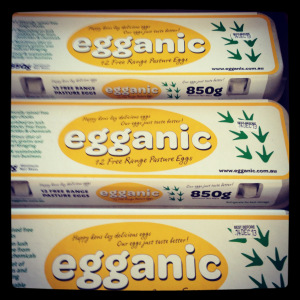
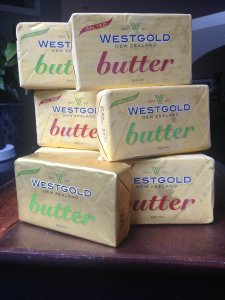
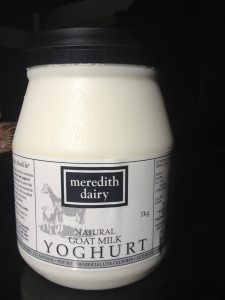
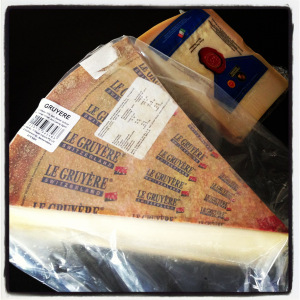
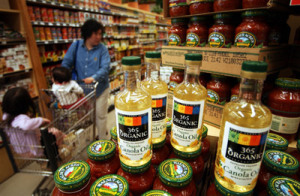
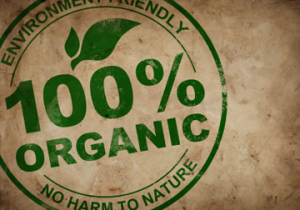
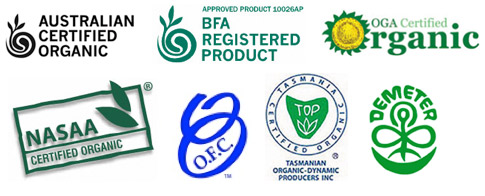
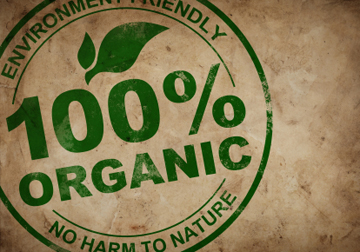
 Conversely, simply because something is certified organic does NOT mean that it is healthy. I wouldn't touch 90% of things sold in trendy organic stores even if they are certified organic. You can now buy certified organic canola oil, castor sugar, gummy bears and breakfast cereals but the certification itself doesn't miraculously convert them into a product that I would consume or recommend. Big businesses have latched onto the organic market with a vengeance (as they perceive lots of money to be made from that sector) but a certification does not absolve the consumer from an obligation to bybass the marketing fluff on the package and scrutinize the ingredients. I have a little motto: if something needs to be advertised it's probably not real food. The food that I buy and consume for myself and my family is not advertised. It's largely single ingredient food that doesn't come in a box, container or package. For this reason I tend not to use the word "organic" in my consultations, conversations or cooking classes.
Conversely, simply because something is certified organic does NOT mean that it is healthy. I wouldn't touch 90% of things sold in trendy organic stores even if they are certified organic. You can now buy certified organic canola oil, castor sugar, gummy bears and breakfast cereals but the certification itself doesn't miraculously convert them into a product that I would consume or recommend. Big businesses have latched onto the organic market with a vengeance (as they perceive lots of money to be made from that sector) but a certification does not absolve the consumer from an obligation to bybass the marketing fluff on the package and scrutinize the ingredients. I have a little motto: if something needs to be advertised it's probably not real food. The food that I buy and consume for myself and my family is not advertised. It's largely single ingredient food that doesn't come in a box, container or package. For this reason I tend not to use the word "organic" in my consultations, conversations or cooking classes.